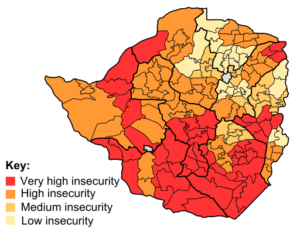
The Venezuelan opposition is desperate. Despite three months of massive protests in the streets, and more than 90 dead, the regime is not collapsing. Economic collapse alone is not enough to overthrow any regime. The proof of this precept can be seen in Zimbabwe, where President Mugabe has been in power for more than 37 years, even as the nation’s economy, infrastructure and political system has crumbled. The CBC has a wonderful four part story board about the current experience of that country, titled “To the bitter end: Zimbabwe and Robert Mugabe: A ruined nation awaits the death of a dictator.” Margaret Evans wrote the articles, Ellen Mauro took the photographs, and Richard Devey did the videos. The result is a powerful, well-written and moving picture of a nation that has lost any hope, except for the inevitable death of their nation’s leader. As the fourth installment of the series, “On the Horizon,” describes, President Mugabe’s second wife is now positioning herself to replace her much older husband after he dies. Much as Fidel Castro was replaced by his brother in Cuba, Zimbabwe might see a familial succession. It is possible for authoritarian regimes to endure for generations, despite the immense harm that they inflict on their countries. The Kim dynasty has controlled North Korea for three generations, despite severe famines, concentration camps and international opprobrium.
The leaders of Venezuela’s opposition say that this moment is now the country’s “zero hour.” They must be wondering if people have the will to keep up the street protests, with no clear end in sight, and the constant grind of finding food. For this reason, this may be Venezuela’s moment of truth.
Shawn Smallman, 2017
